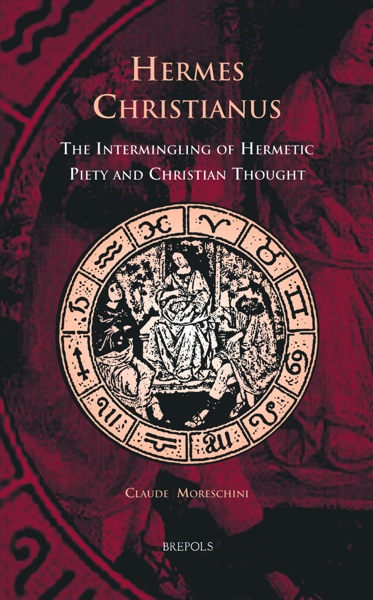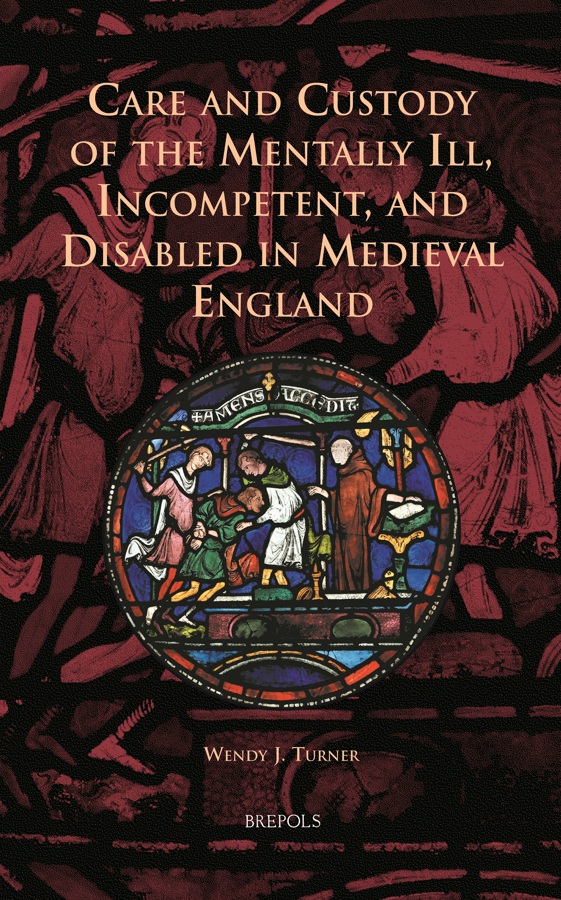
Care and Custody of the Mentally Ill, Incompetent, and Disabled in Medieval England
Wendy J. Turner
- Pages: 336 p.
- Size:156 x 234 mm
- Illustrations:2 b/w
- Language(s):English, Latin, German
- Publication Year:2013
- € 100,00 EXCL. VAT RETAIL PRICE
- ISBN: 978-2-503-54039-9
- Hardback
- Available
- € 100,00 EXCL. VAT RETAIL PRICE
- ISBN: 978-2-503-56049-6
- E-book
- Available
This work examines the treatment of the mentally incapacitated, whether disabled or impaired, from approximately 1250 to 1500 and puts forth a coherent picture of society’s treatment, protection, abuse, care, and custody of the mentally incapacitated in late medieval England.
"Impressive appendices add to the usefulness of this study. Scholars who have other interests, particularly associated with the royal officials like escheators, the legal nuances of English laws and customs applied in conquered or marcher territories, property, and inheritance law, or the criminal law, will benefit from parts of this study. So too will those interested primarily in constructions and understandings of mental health and illness, because this book has made a valuable contribution to that field." (Nicholas Brodie in: Parergon, vol. 31.2, 2014, p. 216-217)
"(...) Turner's scrupulous citation of hundreds of records and her detailed recounting of specific anecdotes casts a most welcome light upon some of the most poorly understood corners of medieval world." (H.C. Erik Midelfort, in: Sehepunkte, 15.6, 2015)
"There are two appendices included: one listing the terms used in medieval England to refer to the mentally impaired and disabled, and the second supplying the sources that describe persons questioned in regards to their mental competence between 1200 and 1500. Both of these resources would be useful for anyone working on mental incapacity, in its social, legal, or medical aspects. (...) Turner’s study illuminates a fascinating period of political and social history, in which a change in the legal relationship between the state and the mentally incapacitated affected the way in which they were viewed and treated." (Leanne Good, in: Comitatus, vol. 46, 2015, p. 309-312)
"(...) this work gives us a detailed analysis of hitherto under-studied source material, whilst uprooting controversies and stimulating debates that will continue long beyond its publication." (Deborah Thorpe, in: The Medieval Review, 15.10.02)
This book is about the social understanding and treatment of the mentally ill, incompetent, and disabled in late medieval England. Drawing on archival, literary, medical, legal, and ecclesiastic sources and studies, the volume seeks to present a coherent picture of society’s treatment, protection, abuse, care, and custody of the incapacitated. Although many medieval stories stereotyped the mad (most often as sinners or innocents), for example, there is clear evidence that English society treated and cared for the impaired on a person-by-person basis. The mentally incapacitated were not lumped into one category and not ignored or sent away; on the contrary, both the English administration and the public had many categories and terms for mental conditions, cognitive abilities, and levels of physicality (violence) associated with impairment. English society also had safeguards and assistants (keepers, custodians, guardians) in place to help mentally impaired persons in life.
This study therefore eschews totalizing assumptions about a societal ‘core’ and its ‘margins’; instead, it instigates a new consideration of communities as holistic entities with an ebb and flow among the contributing and non-contributing elements as people live, grow, age, get sick, become well, have children, break bones, or live with mental or physical impairments.
Illustrations
Acknowledgements
Introduction
Chapter 1. Sources of Social and Cultural Perceptions
Chapter 2. Legal Opinions of Mental Ability
Chapter 3. Determining Insanity
Chapter 4. Investigating Competence
Chapter 5. Criminals
Chapter 6. Protecting Inheritances
Chapter 7. Royal Prerogative Wardship
Chapter 8. Guardians
Chapter 9. Medieval Wardship Ends
Appendix 1. Terms used to Describe the Mentally Impaired and Disabled in Medieval England
Appendix 2. Records of the Mentally Incapacitated in Medieval England
Bibliography
Index of Medieval Names in Case Studies
General Index




